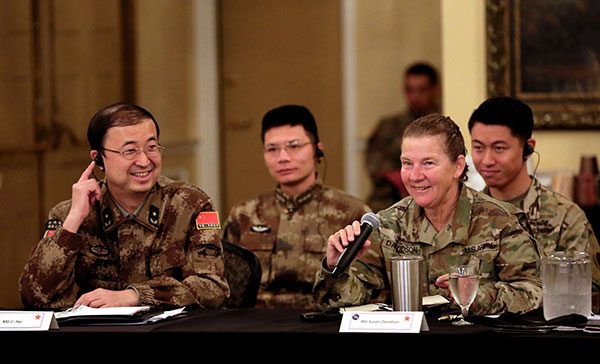
The Chinese and US militaries started a weeklong joint humanitarian and disaster relief exercise and seminar on Monday in Portland, Oregon, in an effort to better coordinate responses to disasters.
The activity began with a three-day academic seminar and will be followed by a command post exercise and a four-day live troop exercise, according to a news release from the Chinese side.
The activity is part of the consensus reached by President Xi Jinping and US President Donald Trump. It also is part of the exchange mechanism between the two militaries.
The seminar involves 15 military experts from both sides focusing on flooding and disasters. The topics include international cooperation in climate models and disaster alerts, the management of flooding and disasters and civil-military operations.
The Chinese experts come from the Central Military Commission, China’s top military body; the State Flood Control and Drought Relief Headquarters, and the Ministry of Civil Affairs.
The US experts are from the US Army Corps of Engineers, the Oregon Army National Guard, the National Weather Service, the National Oceanic and Atmospheric Administration and the US Geological Survey.
During the three-day program, the experts also are sharing experiences in domestic and international humanitarian disaster relief work, and participate in a tour of the Columbia River Flood Control project.
The command post exercise will involve 35 participants from each side to set up a multinational coordination center. They will adopt the multinational force standard operating procedures to conduct joint exercises in simulated disaster conditions in a third country.
The military personnel from each side also will conduct academic exchanges and live troop exercises on helicopter search and rescue, ruins rescue, confined space rescue and other rescue operations.
The joint humanitarian and disaster relief exercise is part of the exchange program between Chinese and the US militaries. Since it was launched in 1997, the two sides have held 13 academic exchanges, five command post exercises and four live troop exercises, involving more than 400 people from both sides.


